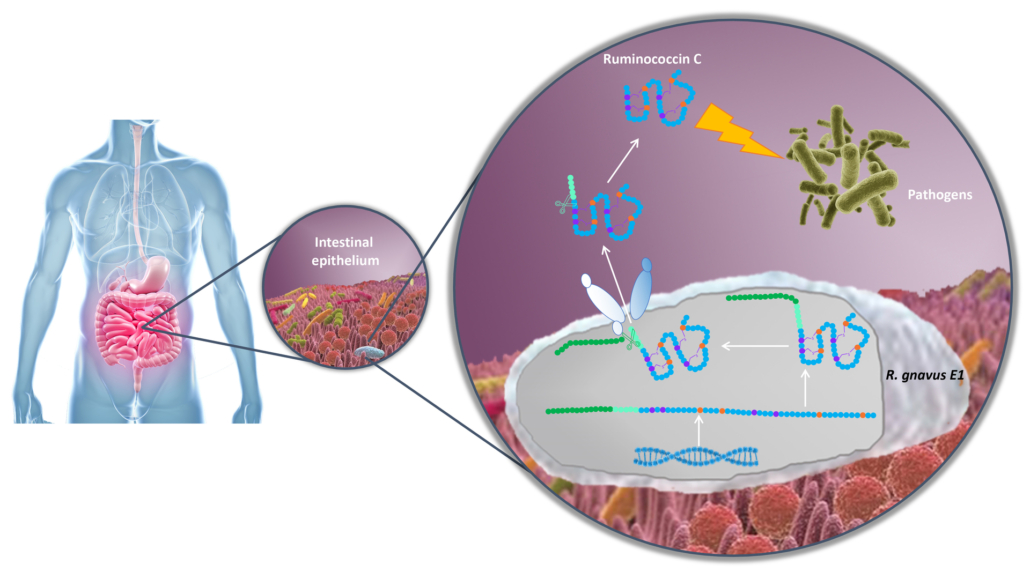
Gut bacterial enzyme keeps inflammation away
An antimicrobial molecule produced by the human microbiota gut may help fight drug-resistant infections.
In studies in human cells, Victor Duarte and colleagues from University of Grenoble, found broad-spectrum antimicrobial activity of a compound isolated from a gut bacterium of the Firmicutes group even against antibiotic-resistand Clostridia and Staphylococci. Unlike many conventional antibiotics, the ribosomally synthesized and posttranslationally modified peptide (RiPP) RumC1 (Ruminococcin C1) did not show any toxicity and did not trigger development of drug resistance.
The findings suggest the peptide, called Ruminococcin C1 (RumC1), may be a valuable candidate for drug development and as a natural probiotic; it could work in combination with other antimicrobial agents to reduce the emergence of bacterial resistance and to fight clinical pathogens.
Previous studies had failed to generate RiPPs in their active form. First author, Steve Chiumento et al. developed a method to purify RumC1 from rat feces, producing an active, mature molecule identical to the peptides that naturally reside in human intestines. The researchers then tested its antimicrobial activity against a broad range of bacteria, including pathogens and strains resistant to multiple antibiotic drugs, and performed safety assays to test its effect on human cell lines. They observed that the peptide isolated from Ruminococcus gnavus E1 fights of Gram-positive bacteria using a previously undescribed mechanism.




 Qiagen
Qiagen